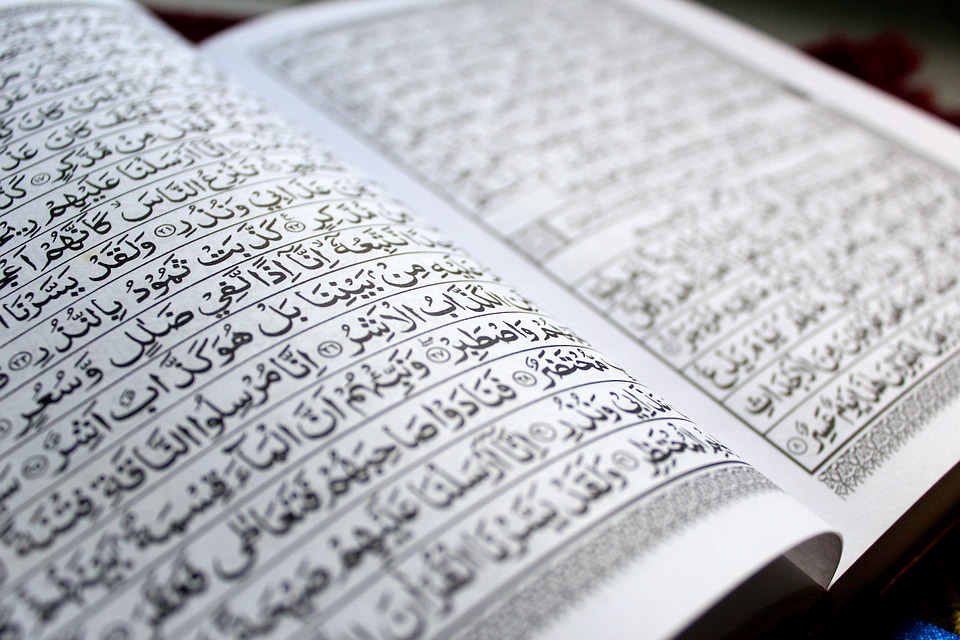This is a Makkan Surah comprised of seventeen short verses. The Surah is a brief reminder about the beginning and end of man. It begins with an oath. This is followed by a reminder of the origin of man. Then a warning about resurrection and the fact that every human will be held accountable for their lives.
It is a reminder that people were created from a single drop of fluid, and a reminder that people will have to answer to Allah on the Last Day for how they lived their lives. The topics of Sūrah at-Tāriq can be divided into two main themes; the origin of man and the final destination of man.
By the Sky and the Night Star (86:1)
The Sūrah begins an oath on the sky and at-Tāriq. There are many different interpretations of what the word at-Tāriq means. However, the most common meaning is that it refers to a star that is visible early at night.
In the Quran, Allah often uses oaths as a literary device. The purpose of these oaths is to draw the reader’s attention to two things. The first is the thing Allah is swearing and oath on. These are usually amazing creations of Allah that we should reflect on. The second is the point Allah makes after the oath. Oaths play a very important role in the Quran. Whenever you come across one, pay attention to both what Allah is taking an oath on as well as what is mentioned next.
As a side note, taking an oath on anything besides Allah is prohibited in our Shariah. Only Allah has the right to do this. Even when taking an oath on Allah’s name, we should never do so in jest and should only do so when there is a genuine need to do so.
So let mankind reflect on what he was created from. He was created from an ejected fluid. (86:5-6)
The oath is followed by a very clear set of verses calling on us to reflect on our origins. Humans, as we grow in wealth and success, tend to forget where we come from. Humans grow haughty and arrogant, thinking that we are the greatest thing in existence. In our arrogance, we can grow disobedient to Allah and vile in character.
The Quran prescribes a simple solution to this disease of the heart; reflecting on one’s roots. This has been the habit of righteous Muslims throughout history. Whenever a pious Muslim felt a tinge of arrogance, he/she would remember a humbly time in their lives and that would humble them.
When ʿUmar bin al-Khaṭṭāb (RA) was the Caliph, he once stood on a pulpit and began talking about his days as a camel herder. The companions could understand why he did this so they asked him. He responded that he felt something in his heart about being the Caliph and wanted to kill it by reminding himself of his roots. There are many other examples of this throughout our history.
The Quran, however, calls us to look even further back. Looking back at simpler times in our lives may work for people who reached success through struggle. But it doesn’t work for people who are born into luxury and wealth. The Quranic prescription to look at what our origin works for every human beings.
Every single human, no matter their status, started out as a drop of fluid. This drop of fluid was dead, having no soul or conscious. It would remain dead unless Allah willed life for it. Allah allowed the drop to reach an egg and fertilize it. He allowed this egg to grow through stages into a fetus. And He had the angels blow a soul into that fetus giving it life.
These verses give us a lot of reflect on. Remembering our roots not only humbles us, it should also make us grateful to Allah for giving us the gift of life. This humility and gratitude should propel us to live lives that are pleasing to Allah.
Indeed, He is Able to return him to life (86:8)
Allah then reminds us that just as He gave us life the first time, He is able to bring us back to life after we die. This is followed by a series of verses warning about the Day of Judgment. These verses conclude this short Surah.
The message of the Surah is very simple. We were once non-existence, then Allah gave us life. One day, He will take that life. Then He will bring us back on the Last Day and hold us accountable for how we spent this life.
These verses should cause us to reflect on the shortness of life. Life is a gift from Allah. But with this gift comes responsibility and a purpose. We exist in this world for only a short while. After that, we will return to our Creator and answer various questions about how we spent our lives.
Ibn Masʿūd reported that the Prophet (peace be upon him) said, “The son of Adam will not be dismissed from his Lord on the Day of Resurrection until he is questioned about five issues: his life and how he lived it, his youth and how he used it, his wealth and how he earned it and he spent it, and how he acted on his knowledge.”
Sunan al-Tirmidhī 2416
Ibn ʿAbbās reported that the Messenger of Allah (peace be upon him) said, “Take advantage of five before five: your youth before your old age, your health before your illness, your riches before your poverty, your free time before your work, and your life before your death.”
Sunan al-Tirmidhī 2417
Life is a gift from Allah with humble beginnings. A couple may enjoy an intimate moment. Allah wills that a child is created through that act of love. That child may grow up and live a full life. But eventually, every human leaves this world, and every person answers to their Lord. The intelligent believer is the one who lives their life in such a way that they can answer all of these questions with answers that are pleasing to Allah.






